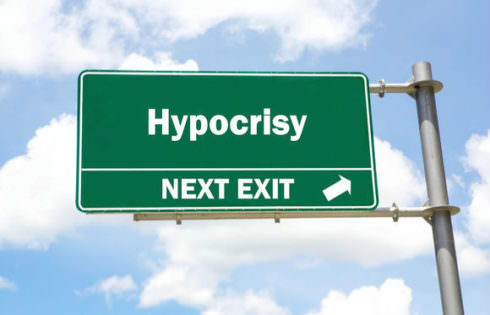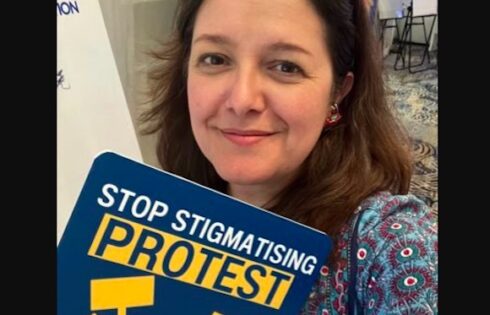
One of the surest ways for student government leaders, campus administrators and university boards to silence and intimidate student groups is by taking away the money they are budgeted.
Such speech retaliation is the basis for two student newspapers’ lawsuits against their universities – The Koala‘s at the University of California-San Diego and the University Daily Kansan‘s at the University of Kansas.
Thanks to an appeals-court decision last week, students’ right to speak without losing their funding “privileges” appears to be secure, at least in the case of the shock-rag Koala.
Political activism is ‘core political speech,’ and it’s been intentionally chilled
The 9th U.S. Circuit Court of Appeals, which covers California, ruled that the Arizona Students Association, which lobbies for students in the state’s three public universities, can continue suing the Arizona Board of Regents for First Amendment retaliation.
The ASA had campaigned for a 2012 ballot measure to increase public-education funding, which upset the board enough that it voted to halt its collection of a per-student fee that funds the ASA. Later the board adopted an “opt-in” model under which students must explicitly state that they want to fund the ASA, and it started charging the ASA the cost of collecting those opt-in fees.
MORE: University sued for defunding student paper that mocked ‘safe spaces’
The 9th Circuit rebuked the lower court for throwing out the case, saying the ASA’s main error was suing the board itself rather than its officers. While constitutionally it can’t get “retrospective relief” – namely, one semester’s collected fees that the board never handed over – the ASA can still obtain an injunction going forward, said the ruling.
Board officials can be targeted under what’s known as a Section 1983 claim “alleging that public officials, acting in their official capacity, took action with the intent to retaliate against, obstruct, or chill the plaintiff’s First Amendment rights,” the appeals court said.
All that’s needed for a plaintiff to prevail is to show that a defendant “intended to interfere” with its protected speech and that it “suffered some injury as a result.”
The ASA has clearly alleged that it engaged in “core political speech” – the most protected category – by advocating for the ballot measure, and that the board’s “retaliatory policy modification” chilled its speech and continues to inhibit the ASA from participating in its prior advocacy.
‘More than just a disagreement between political rivals’
The appeals panel goes on at length about why this is so problematic, in language that will probably show up in The Koala‘s UCSD suit:
Significantly, the ASA and ABOR’s [the board’s] dispute is more than a disagreement between similarly situated political rivals. ABOR represents the State’s most powerful authority in determining the policies, delivery, governance, management, and accessibility of Arizona’s public higher education. The ASA is composed entirely of public university students, and it represents the collective voice of those students. The disparity in power between ABOR and Arizona’s public university students is vast. According to the ASA, ABOR leveraged that power to punish the ASA for participating in core political speech and, further, to attempt to bankrupt the ASA to prevent it from exercising its free-speech rights in the future. Given the inherent power asymmetry between the Board and students, as well as the severe impact of ABOR’s actions on the ASA, it is highly likely that the Board’s alleged retaliation would chill and discourage a student or student organization of similar fortitude and conviction from exercising its free-speech rights.
MORE: Real target of all-media defunding vote? Offensive student paper
It doesn’t matter that the ASA has “no independent or affirmative right” to have the board collect and remit the fees that fund it – the board has allegedly attacked the ASA’s freedom of speech by denying it a “valuable government benefit” because of its speech activity:
ABOR had no affirmative obligation to collect or remit the ASA fee, but having done so for fifteen years at no cost, ABOR could not deprive the ASA of the benefit of its fee collection and remittance services in retaliation for the ASA’s exercise of its First Amendment rights.
Frank LoMonte of the Student Press Law Center sees this ruling as giving “additional legal ammunition” to student outlets that have been stripped of funding “because of unflattering content”:
Had that [lower-court] ruling held up, student media organizations facing the removal of university financial support would have had an essentially impossible burden to challenge even the most blatant cause-and-effect cases of retaliation.
LoMonte compares the yanking of funding in response to unflattering content to a governor sending “the highway patrol door-to-door to confiscate the driver licenses of people who give speeches opposing the governor just because ‘driving is a privilege, not a right.'”
MORE: Satire publication punished because Title IX overrules Constitution
The University Daily Kansan is likely to cite this ruling, even though it’s in the wrong circuit, to defeat its university’s motion to dismiss the case, LoMonte says. (UCSD hasn’t yet filed a motion to dismiss, and it may have no grounds to do so now.)
Whatever else might result from this ruling, you can be confident that “the worst in collegiate journalism” (The Koala‘s slogan) will continue publishing horribly offensive content that the easily triggered activists of UCSD keep reading for some reason.
MORE: New rule for college humor rags: Stick to PC jokes
Like The College Fix on Facebook / Follow us on Twitter
IMAGES: Natan86/Shutterstock, The Koala screenshot








Please join the conversation about our stories on Facebook, Twitter, Instagram, Reddit, MeWe, Rumble, Gab, Minds and Gettr.